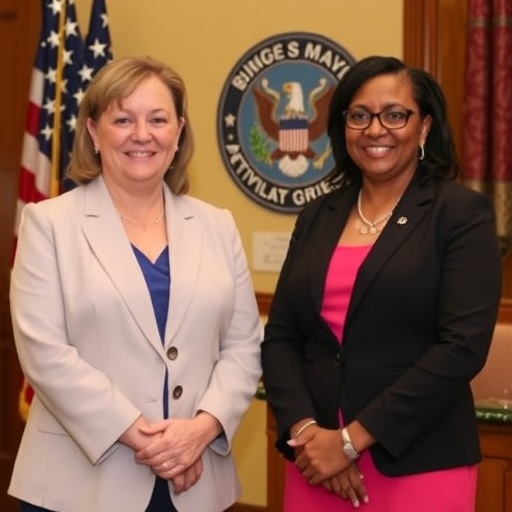The recent and unexpected resignation of the Centers for Disease Control and Prevention (CDC) Director has sent ripples through the public health community, signaling a precarious moment for one of the nation’s most fundamental health institutions. The CDC, a cornerstone agency tasked with safeguarding the American public from infectious diseases, environmental hazards, and emerging health threats, now faces a leadership void at a crucial juncture. This abrupt departure undermines the stability and authoritative guidance that the agency urgently requires amidst ongoing and future health crises.
Public health leadership is predicated on consistency, expert knowledge, and the ability to deliver evidence-based guidance amid rapidly evolving scenarios. The CDC’s role extends far beyond controlling disease outbreaks; it encompasses shaping national health policies, advancing epidemiological research, and coordinating multi-level responses during emergencies. The sudden loss of a validated and authoritative leader diminishes the agency’s ability to maintain public trust and implement scientifically rigorous interventions essential for nation-wide health security.
The importance of stable CDC leadership cannot be overstated, particularly in an era marked by heightened challenges including global pandemics, antimicrobial resistance, climate change-related health consequences, and vaccine misinformation campaigns. Each of these challenges demands a leader equipped not only with technical expertise but also with political acumen to navigate complex governmental and societal landscapes. The CDC needs decisive leadership to reinforce its mission and uphold its credibility amid increasing politicization and skepticism towards scientific institutions.
CDC directors traditionally act as the interface between scientific evidence and public policy—a role requiring a careful balance of transparency, strategic communication, and scientific rigor. A sudden leadership change disrupts ongoing initiatives, potentially stalls critical research, and delays preparedness programs. In turn, this can weaken the nation’s readiness for emergent threats such as novel pathogens or bioterrorism incidents, where timeliness and coordinated response are imperative to minimize morbidity and mortality.
The broader context for this leadership disruption is the escalating political and societal pressures faced by public health agencies. Attacks on science and public health professionals have intensified, propagated by misinformation and ideological conflicts. These challenges undermine public confidence in scientific directives and hamper comprehensive health strategies. Empowering the CDC with appointed leadership who can steadfastly advocate for science-based policies is foundational to navigating this turbulent climate.
Beyond immediate crisis management, the CDC also plays a strategic role in strengthening health infrastructure and addressing social determinants of health to reduce disparities across populations. Leadership turnover at the agency risks jeopardizing long-term initiatives aimed at tackling chronic diseases, mental health, and health equity. Sustained direction is essential to maintain momentum on such multifaceted public health fronts, which require coordinated cross-sector collaboration, data integration, and resource allocation.
Within the scientific and epidemiological community, CDC leadership serves as a guiding beacon, setting research priorities and allocating funding for critical studies. Leadership vacuums can lead to fragmentation and inefficiencies, stalling advancements that contribute to our understanding of disease transmission dynamics, vaccine development, and public health interventions. For example, ongoing research into pandemic prevention technologies, real-time data surveillance systems, and novel diagnostic tools rely heavily on agency support and strategic oversight.
The current health landscape underscores the need for a CDC director who embodies both scientific excellence and operational leadership. This individual must steer the agency through immediate concerns such as COVID-19 variants and vaccine rollout complexities, while also forecasting and mitigating future threats. They must foster collaborations across federal, state, and local levels, as well as international partners, since infectious diseases know no borders and require a global health security perspective.
Public health governance structures depend on trust—not only from policymakers but also from the communities served. The director’s ability to communicate effectively with diverse populations, address vaccine hesitancy, and combat misinformation is critical to elevating public compliance with health recommendations. The absence of dedicated leadership risks widening mistrust in a system vital for collective health outcomes.
It is imperative that the Administration and Senate expedite the appointment of a new CDC director who brings a blend of scientific credentials, crisis management experience, and political savvy. The individual must be empowered to insulate the agency from partisan interference and champion evidence-based policies. Swift action will help ensure the CDC can maintain continuity in protecting Americans from current and emergent health threats and sustain progress toward healthier communities.
In conclusion, the unexpected resignation of the CDC Director arrives at a moment when strong leadership is needed most. The agency stands as a bulwark against ongoing public health threats, and its ability to function effectively hinges on having a qualified, steady leader at the helm. Without such leadership, the United States risks compromising its ability to respond to present health emergencies and prepare for future pandemics, jeopardizing the health and safety of all Americans.
Subject of Research:
None specified.
Article Title:
None specified.
News Publication Date:
None specified.
Web References:
None specified.
References:
None specified.
Image Credits:
None specified.
Keywords:
Public health, CDC, Epidemology, Leadership, Health policy, Pandemic preparedness, Disease control, Scientific integrity, Health security, Vaccine confidence, Health disparities, Infectious diseases




